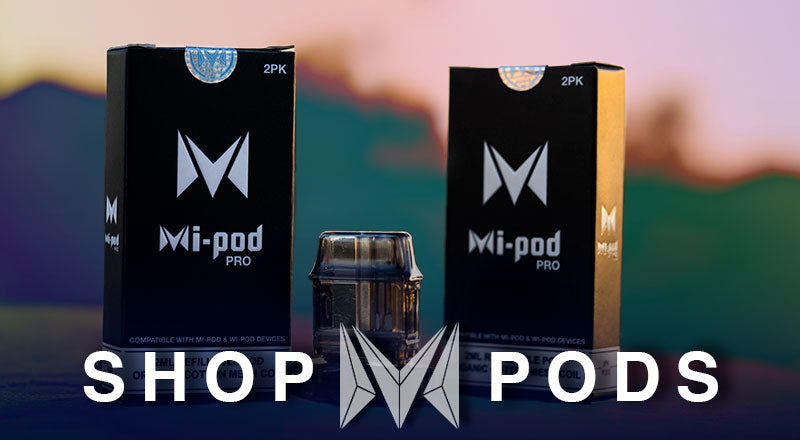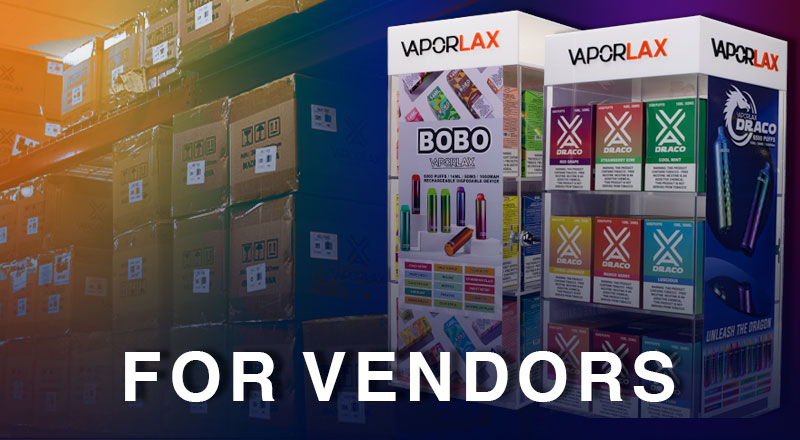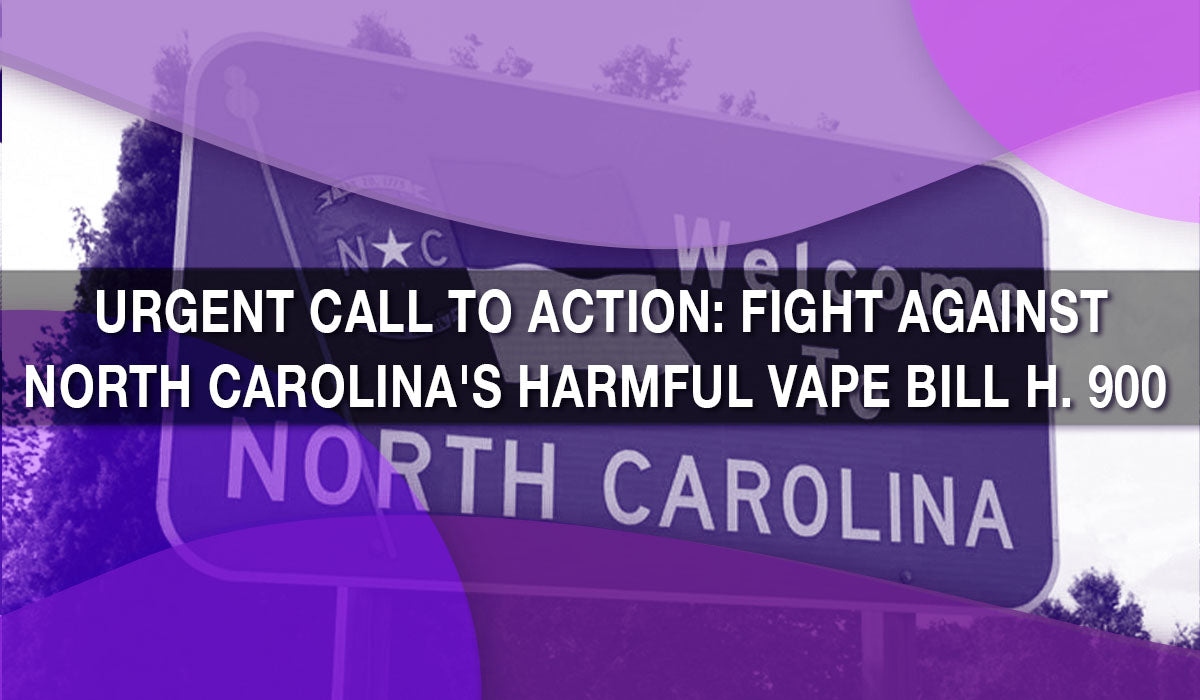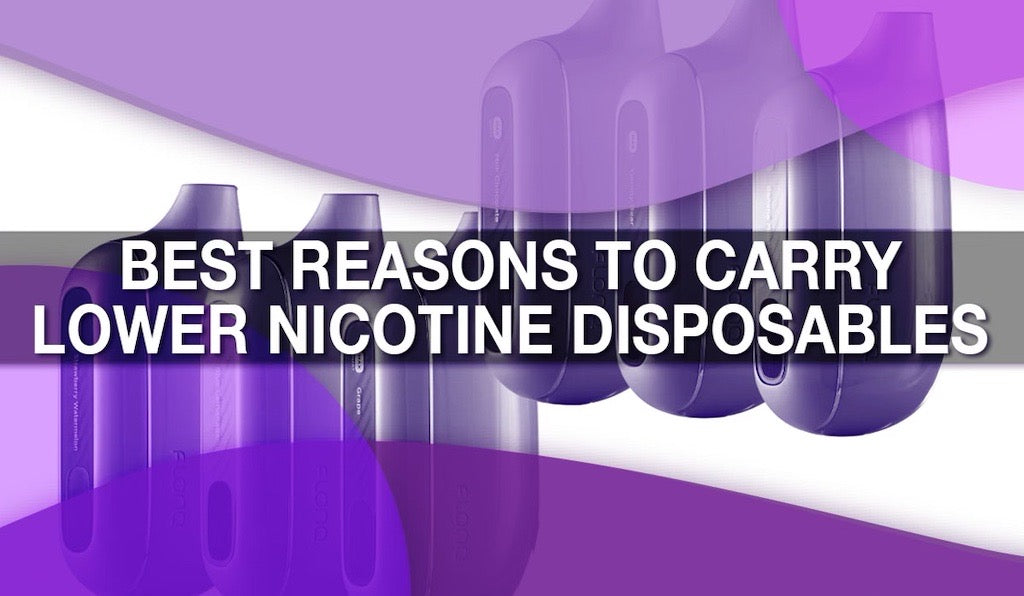Supreme Court to Review FDA Vaping Regulations: A Pivotal Moment for the Industry
The U.S. Supreme Court (SCOTUS) has scheduled a conference for June 20 to consider four petitions related to the Food and Drug Administration (FDA) regulation of vaping products. This session will address the ongoing legal battles surrounding the FDA's marketing denial orders (MDOs) for various e-cigarette manufacturers. The four cases under review are:
- Food and Drug Administration v. Wages and White Lion Investments, L.L.C. (Triton Distribution)
- Magellan Technology, Inc. v. Food and Drug Administration
- Lotus Vaping Technologies, LLC v. Food and Drug Administration
- Logic Technology Development LLC v. Food and Drug Administration
Coupled with the FDA backtracking on Juul’s MDO, there is a glimmer of hope for adults who want access to alternative nicotine products and the companies that provide these products.
The FDA's Deeming Rule: A Blow to Small Vape Businesses and Innovation
On May 5, 2016, the FDA announced the finalized Deeming Rule, catching vapers and small vape businesses off guard. Their pleas to preserve these products went unheard as the FDA implemented stringent regulations, favoring large tobacco companies over the innovative vape industry.
The new rules created an intricate maze of regulatory challenges for small businesses. The FDA required that all components and parts be tested in every possible combination with other products and e-liquids. For example, selling an atomizer with a 510 connection would mean testing it with all potential attachments and e-liquids to ensure each combination met public health standards.
In just the last five years (2019 – 2023), FDA has fast tracked to market more than 11,600 combustible tobacco products. Of these, 1,547 were new cigarettes, 6,128 were new cigars, and 1,420 were new hookah tobacco products, so many of which were flavored.

Triton Distribution
The most high-profile case involves Triton Distribution, a Texas-based e-liquid manufacturer. After appealing its MDO in October 2021 and losing in the Fifth Circuit Court in 2022, Triton secured an en banc rehearing and won with a 10-6 decision. The Fifth Circuit victory for the vape industry was a consequential rebuke of the FDA’s administrative scheme and they are now appealing this decision. This setback for the FDA created a "circuit split"—a situation where different federal courts have rendered conflicting decisions on similar cases. This split necessitates a Supreme Court review to ensure consistent application of the law.
Other Manufacturers
Magellan Technology, Lotus Vaping Technologies, and Logic Technology Development have all lost their MDO appeals in federal courts and are seeking writs of certiorari from the Supreme Court. Their petitions argue that the FDA's process for denying marketing applications lacks consistency and fairness, impacting their ability to continue operations.
Implications for the Industry
The outcome of these cases could significantly impact the vaping industry. If the Supreme Court accepts any of these petitions, it could clarify and potentially reshape the FDA's regulatory framework for e-cigarettes. Currently, dozens of vape manufacturers are entangled in legal battles over MDOs, with many awaiting resolution in various federal courts.
Triton as the "Best Vehicle" for PMTA Questions
Legal experts, including Jonathan Adler from Case Western Reserve University, suggest that Triton's case is a strong candidate for Supreme Court review. The case encapsulates most of the questions posed in the other three cases and highlights the discrepancies in judicial rulings across different circuits. Solicitor General Elizabeth Prelogar has also emphasized the importance of this case in resolving the circuit split and standardizing the FDA's premarket tobacco application (PMTA) approval process.
FDA's Venue Challenge in the Fifth Circuit
In a related development, the FDA has requested the Supreme Court to rule on the appropriateness of the Fifth Circuit as a venue for MDO challenges. R.J. Reynolds, a prominent tobacco company, has appealed three MDOs for its Vuse menthol products in the Fifth Circuit by involving co-plaintiffs with ties to the circuit. The FDA argues that these appeals should be heard in the Fourth or District of Columbia circuits, where Reynolds is incorporated and primarily operates.
The Fifth Circuit's current stance allows retail sellers of tobacco products, who wouldn't typically have judicial review rights, to join appeals, thereby facilitating forum shopping. This practice undermines the Tobacco Control Act’s intended venue limitations, and the FDA is urging the Supreme Court to reverse this precedent.
What’s Next?
On June 20, the Supreme Court justices will decide whether to accept one or more of these petitions for review. If they do, it could lead to a landmark decision that defines the future of vaping product regulation in the U.S. A minimum of four justices must agree to grant certiorari for a case to proceed. Given that the Supreme Court accepts only a small percentage of the petitions it receives, the vaping industry is keenly watching this pivotal moment.
As the legal landscape evolves, manufacturers, consumers, and regulators alike await the Supreme Court's decisions, which will have far-reaching implications for public health, regulatory practices, and the vaping market's future.
FDA Has Been Protected by Chevron Deference
Vape companies have been forced to navigate the whims of the PMTA process, which in the view of the Fifth Circuit Court is opaque, capricious, and arbitrary. They have had little legal recourse and enjoyed few victories because the FDA is protected by a principle of administrative law known as the Chevron deference.
Chevron deference provides federal agencies with the ability to interpret and implement ambiguous statutes, so long as these interpretations are reasonable. Chevron deference exists due to the assumption that executive branch agencies are acting in good faith. In cases concerning the implementation of statutes, the court defers to the expertise of regulators on scientific issues.
This legal doctrine provided the FDA with a robust defense against legal challenges and led to the courts upholding their agencies implementation of vaping regulations as a matter of course. This deference has doomed many thousands of small businesses to bankruptcy since it became case law in 1984.
Will the Chevron Deference Be Dismantled in 2024?
There has been a seismic shift in recent years away from the Chevron deference. There is growing skepticism about this level of deference being shown to unelected federal regulators. The Court has increasingly favored more stringent reviews of agency interpretations, emphasizing the judiciary's role in ensuring that agencies do not exceed their statutory mandates.
Loper Bright Enterprises v. Raimondo was heard during the recent SCOTUS session and there is a possibility that it will sound the death knell of Chevron, which was already on the ropes after West Virginia v. EPA limited the scope of agency interpretations in cases with major national implications. A group of vaping companies filed an amicus curiae brief in support of overturning the Chevron doctrine.
Business owners in the vaping industry should take particular note of these developments, as they underscore the volatile and challenging regulatory environment in which they operate. The Supreme Court's review of these cases could lead to significant changes in the regulatory framework, potentially easing some of the burdens that small businesses face. The ongoing legal battles and the possible reevaluation of Chevron deference highlight the importance of staying informed and engaged with regulatory processes. Business owners must be proactive in advocating for fair and consistent regulations that support innovation and market competition while ensuring public health and safety. The outcome of these cases could provide a more level playing field, enabling smaller companies to compete more effectively with larger, established tobacco firms.






Leave a comment
This site is protected by hCaptcha and the hCaptcha Privacy Policy and Terms of Service apply.